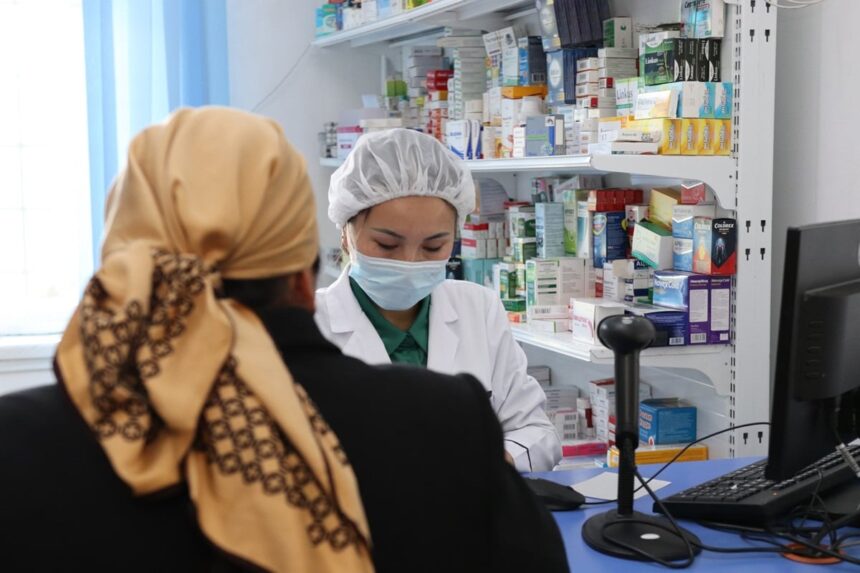“`html
Implementation is now underway for the newly established Health Impact Investment Platform, marking a significant step towards transforming initial commitments into actionable health investment plans in various countries. This groundbreaking collaboration involves Multilateral Development Banks (MDBs), the World Health Organization (WHO), and nations classified as low- and middle-income (LMICs). The initiative aims to address the urgent need for unified efforts to enhance primary healthcare (PHC) in at-risk and underserved populations, thereby bolstering resilience against pandemic threats such as mpox and challenges posed by climate change.
During a high-level roundtable held in New York alongside the UN Summit of the Future, new funding agreements were finalized. Partners committed to collaboratively assess needs and strategize improvements in healthcare across 15 selected countries.
The meeting saw participation from key stakeholders including the founding MDBs: African Development Bank (AfDB), European Investment Bank (EIB), Islamic Development Bank (IDB), WHO representatives, heads of state, and health ministers from Senegal and Uganda. Additionally, the Asian Development Bank expressed its support for expanding this initiative into its operational regions by endorsing the Declaration on Strengthening Primary Health Care through this platform.
The EIB along with WHO initiated an initial contribution of €10 million to launch these investment plans. Both IDB and AfDB are finalizing similar contributions that will be formalized shortly.
This platform is integral to unlocking €1.5 billion in concessional loans and grants aimed at enhancing primary healthcare services within low- and middle-income nations, particularly targeting their most vulnerable communities. The investment strategies currently being formulated across these 15 countries represent a crucial phase of this financial endeavor.
The objective is to collaborate closely with national governments to devise health strategies that prioritize investments aligned with local health requirements. Today’s launch coincides with one year since this platform was first introduced during the Summit for a New Global Financing Pact held in Paris.
Dr Ibrahima Sy, Minister of Health for Senegal stated, “Engaging private sectors alongside local communities through diverse financing avenues is essential for advancing health initiatives. The collaboration between WHO, multilateral development banks, and national governments plays a pivotal role in directing investments from this Platform towards effective primary healthcare delivery while also fostering local vaccine production capabilities.”
Dr Jane Ruth Aceng, Uganda’s Minister of Health remarked on the significance of establishing such platforms: “All our challenges originate at primary healthcare levels—be it disease outbreaks or access issues; everything begins there.”
“Primary healthcare represents an equitable approach that effectively enhances overall well-being by maintaining public health standards while enabling early detection of potential outbreaks,” emphasized Dr Tedros Adhanom Ghebreyesus, Director-General of WHO. “The Health Impact Investment Platform will serve as an essential source for new funding aimed at developing resilient primary care systems capable of weathering climate-related crises.” He expressed gratitude towards multilateral development banks for their partnership commitment while reaffirming WHO’s dedication to working closely with nations involved.
Nadia Calviño, President of EIB noted: ”One year ago we launched this impactful platform; today we take further steps forward by contributing resources tailored toward developing specific investment plans.” She highlighted how supporting robust primary care services lays down strong community foundations through collaborative efforts among MDBs guided by WHO expertise.
“Global health security hinges on strengthening every component within it; today’s announced funds will empower nations striving toward enhanced primary care systems critical for curbing disease outbreaks,” stated Jutta Urpilainen from European Commission International Partnerships Department. She added that beyond financial support provided via this Platform lies an opportunity to fortify partnerships ensuring effective fund allocation across participating countries.”
Prior to COVID-19’s onset ,WHO estimated substantial increases were necessary regarding annual spending among low-and lower-middle income states—projected figures suggest additional US$371 billion would be required collectively each year until 2030 just so populations can access adequate medical services along with constructing new facilities whilst training personnel accordingly . Furthermore ,preparing against future pandemics could necessitate around US$31 .1 billion annually where approximately one-third must derive from international financing sources .
This innovative Platform builds upon lessons learned during cooperative efforts between various entities throughout previous global crises like COVID-19—for instance ,collaborations involving Angola ,Ethiopia & Rwanda showcased successful outcomes achieved when technical assistance combined grants/investments facilitated implementation/enhancement related specifically towards improving existing PHC frameworks .
*Countries included under Phase One Initiative:
- Burundi
- Central African Republic
- Comoros
- Djibouti
- Egypt
- Ethiopia
- The Gambia
- Guinea Bissau
- Jordan
- The Maldives
- Morroco
- Senegal
< li >South Sudan < / li >
< li >Tunisia < / li >
< li >Zambia < / li >Editorial Insights:
< p >About World Health Organization:< / strong >< p >The World Health Organization(WHO) serves as United Nations’ specialized agency dedicated solely towards matters concerning global public health.It operates collaboratively alongside member states primarily via respective ministries responsible overseeing relevant sectors.WHO leads initiatives shaping research agendas setting norms/standards articulating evidence-based policy options providing technical assistance monitoring trends affecting population well-being.< / p >
< p >Media inquiries can be directed here: mediainquiries@who.int< / p >
< p >About African Development Bank Group:< / strong >< p >African Development Bank Group(AfDB) stands out amongst premier institutions focused on developmental finance within Africa comprising three distinct entities namely ;AfricanDevelopmentBank(AfDB ),AfricanDevelopmentFund(ADF )and NigeriaTrustFund(NTF ).With presence spanning over thirty-seven African nations complemented by external office located Japan,AfdB contributes significantly economic growth social progress experienced across fifty-four regional member states.< / p >
< p />About European Investment Bank:< / strong >< p />EuropeanInvestmentBank(EIB )functions long-term lending institution representing interests shared among EU member states.Financing sound investments aligned EU policy goals remains core focus area prioritizing climate/environmental sustainability innovation skills small-medium enterprises infrastructure cohesion.EIB collaborates extensively other institutions having allocated total funding exceeding€42billion globally since inception investing sector back1997.< br />< br />
Media contact available here : press@eib.org
Source`
“`






